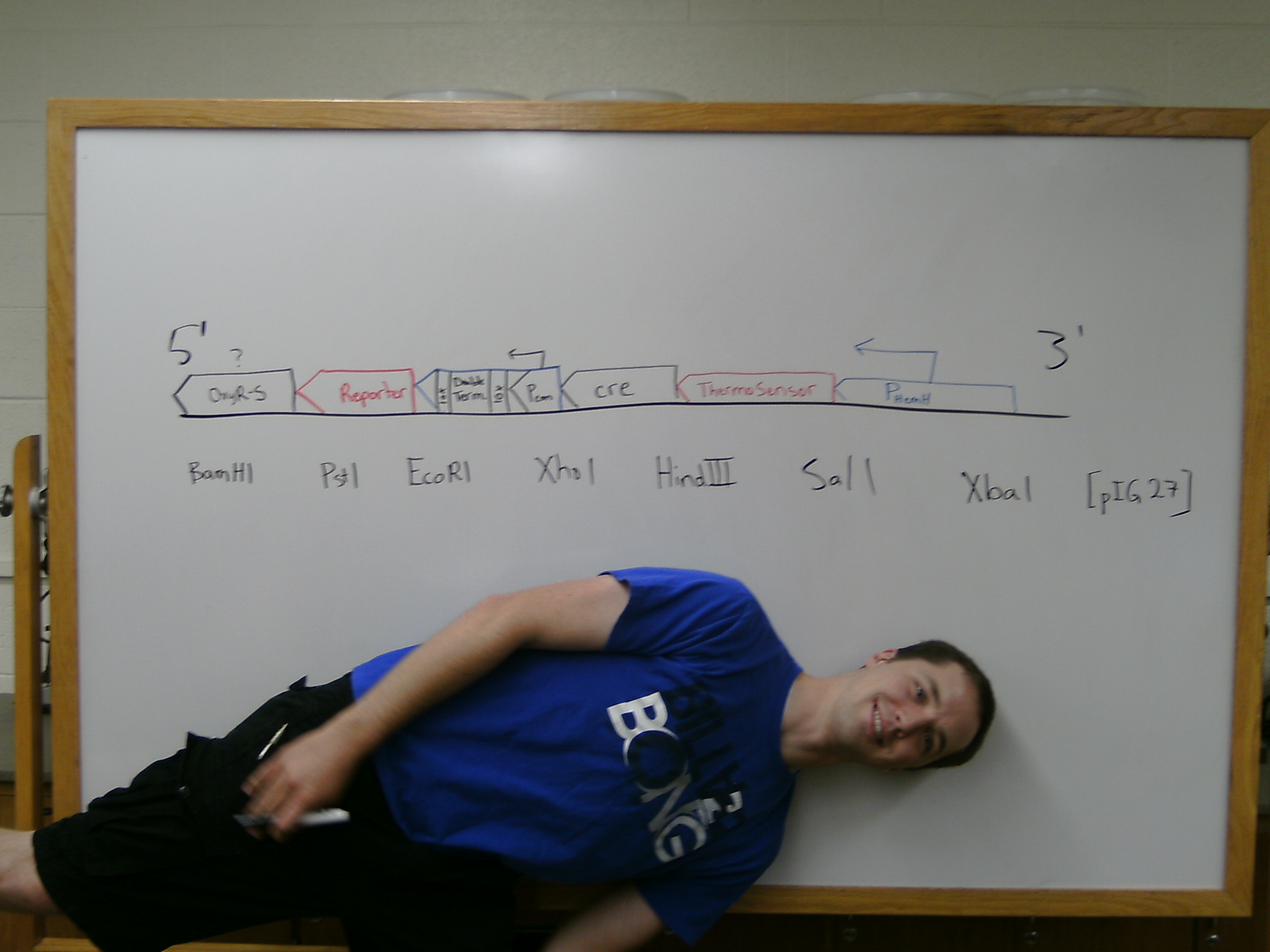Team:BYU Provo/Team OxyR/Week20
From 2011.igem.org
(Difference between revisions)
(Created page with "{{Template:BYU_Provo}} <html><head><meta http-equiv="X-UA-Compatible" content="IE=EmulateIE7"></head></html> <div id='pageContents'> ==30 August 2011== After plasmid minipreps...") |
(→30 August 2011) |
||
| Line 8: | Line 8: | ||
After plasmid minipreps with the new low-copy constructs, Matt electroporated them into the correct wild-type or OxyR- strains. | After plasmid minipreps with the new low-copy constructs, Matt electroporated them into the correct wild-type or OxyR- strains. | ||
| - | [[File:ChetUnderlining.JPG| | + | [[File:ChetUnderlining.JPG|400px|thumb|center|Chet, underlining the final construct plans. ]] |
| - | + | ||
==31 August 2011=== | ==31 August 2011=== | ||
Revision as of 05:30, 14 September 2011

|
30 August 2011
After plasmid minipreps with the new low-copy constructs, Matt electroporated them into the correct wild-type or OxyR- strains.
31 August 2011=
Mackay set up a PCR reaction with high-fidelity polymerase, to amplify our katG and hemH promoters with new restriction sites, in order to clone them into the thermosensor team's construct with minimal work. Matt came in later that night to set up overnights for the next day's plate reader experiments.
1 September 2011
Matt and Mackay were in the lab bright and early to run the plate reader experiment with the new low-copy constructs, and with their minds made up to make no mistakes whatsoever. Indeed, it was basically a flawless execution. All constructs were run in triplicate. The data looked great:
 "
"

